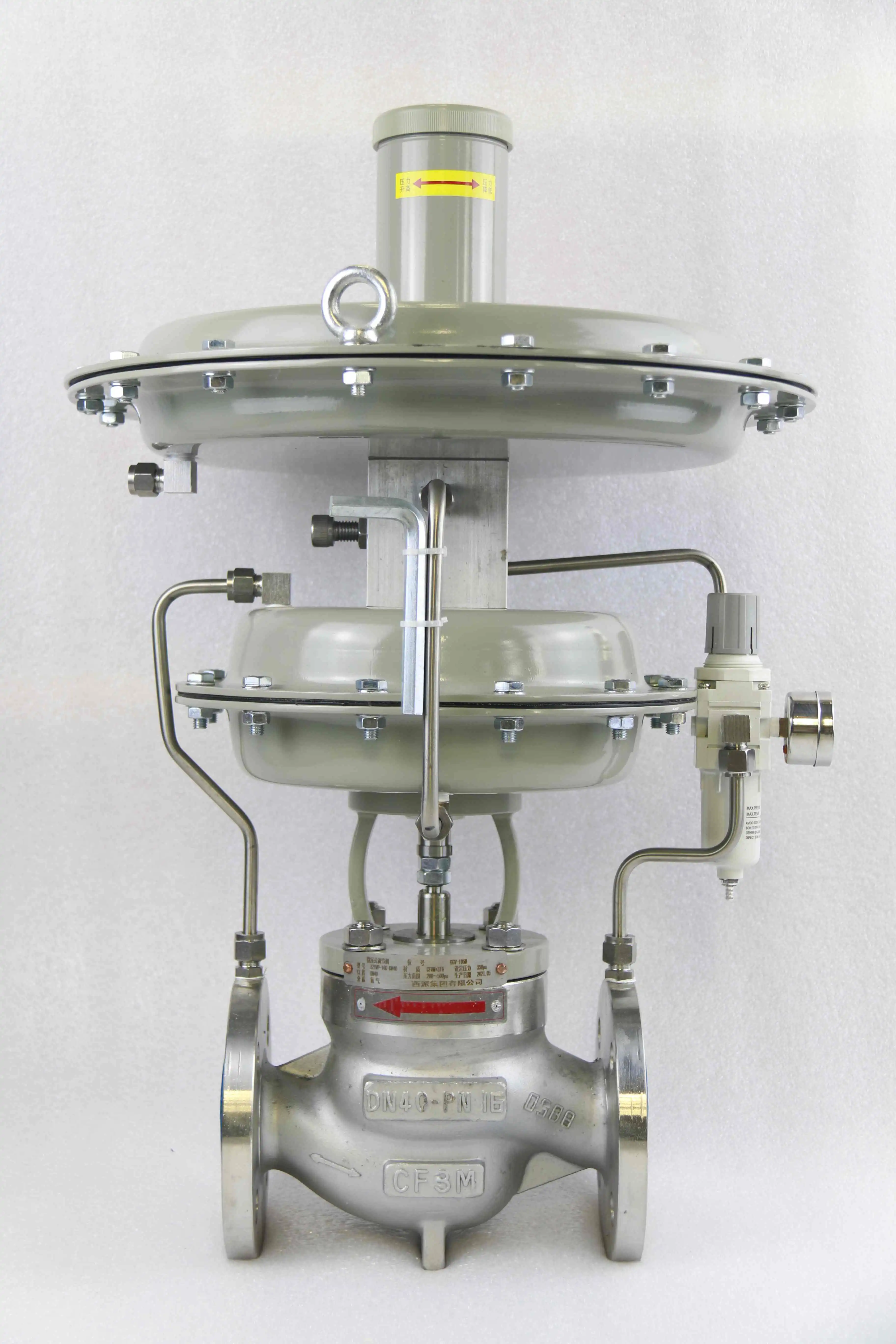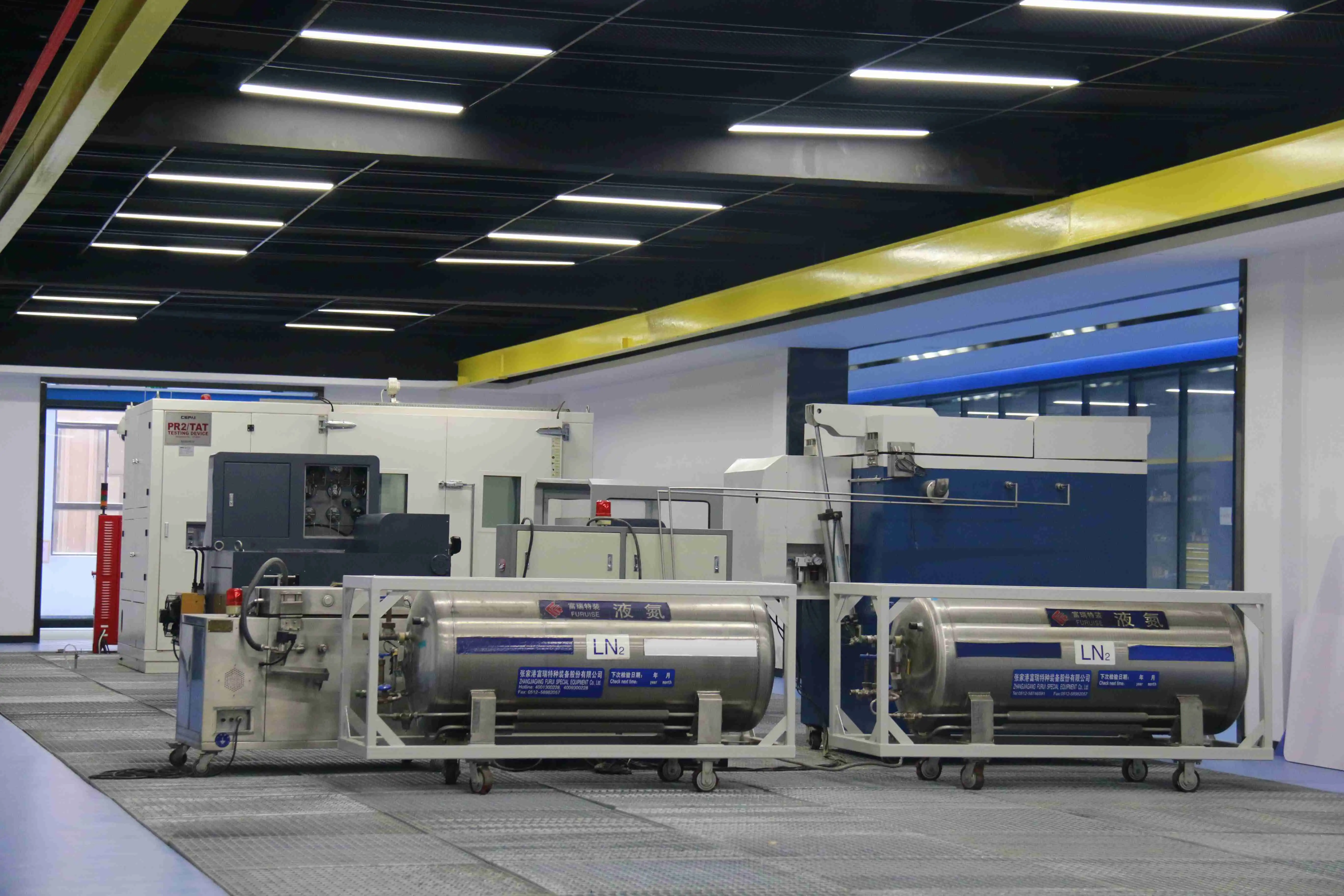Why High Accuracy Matters in Control Valve Performance?
In today's industrial landscape, precision control systems form the backbone of efficient manufacturing processes across petrochemical, power generation, and water treatment facilities. The accuracy of control valves directly impacts operational efficiency, safety standards, and overall system performance. When examining why high accuracy matters in control valve performance, we discover that precise flow control translates to enhanced process stability, reduced energy consumption, and minimized maintenance requirements. Control Valve accuracy serves as the cornerstone for achieving optimal system performance while maintaining strict safety protocols in critical industrial applications.
Enhanced Process Control and System Stability

Precise Flow Regulation Capabilities
High-accuracy control valves deliver exceptional precision in flow regulation, enabling operators to maintain exact process parameters within tight tolerances. The ability to achieve precise flow control is fundamental to maintaining consistent product quality and operational efficiency. Control Valve systems equipped with high-precision components can respond to minor process variations with remarkable accuracy, ensuring that flow rates remain within specified parameters regardless of upstream or downstream pressure fluctuations. Advanced manufacturing techniques, including precision machining and specialized seat designs, contribute to superior flow characteristics that minimize deviation from setpoints. The implementation of high-accuracy positioning systems allows for incremental adjustments that can be measured in fractions of percentages, providing operators with the granular control necessary for sensitive processes. Modern control valve technologies incorporate sophisticated feedback mechanisms that continuously monitor and adjust valve positioning to maintain optimal flow conditions, reducing the likelihood of process upsets and ensuring consistent performance across varying operating conditions.
Reduced Process Variability
The implementation of high-accuracy control valves significantly reduces process variability by maintaining consistent flow characteristics throughout the operational range. This consistency translates to improved product quality, reduced waste generation, and enhanced overall process reliability. Control Valve precision directly correlates with the ability to minimize fluctuations in process variables such as temperature, pressure, and concentration levels. Advanced valve designs incorporate features such as characterized flow curves and optimized trim configurations that ensure linear response characteristics across the entire operating range. The reduction in process variability achieved through high-accuracy control valves enables manufacturers to operate closer to optimal setpoints without the safety margins typically required for less precise equipment. This operational efficiency translates to tangible benefits including reduced raw material consumption, lower energy costs, and improved yield rates. Furthermore, consistent process control reduces the stress on downstream equipment, extending operational life and reducing maintenance requirements throughout the entire system.
Advanced Control Loop Performance
High-accuracy control valves serve as critical components in advanced control loops, enabling sophisticated control strategies such as cascade control, feedforward compensation, and model predictive control. The precision offered by these valves allows control systems to implement complex algorithms that optimize performance across multiple process variables simultaneously. Control Valve accuracy directly impacts the stability and responsiveness of control loops, with high-precision valves enabling faster settling times and reduced overshoot characteristics. The integration of smart positioners and digital communication protocols enhances control loop performance by providing real-time feedback on valve position, diagnostic information, and performance metrics. Advanced control valves incorporate features such as adaptive control algorithms that automatically adjust response characteristics based on process conditions, ensuring optimal performance across varying operational scenarios. The ability to achieve precise control enables the implementation of optimization strategies that can significantly improve process economics while maintaining strict safety and environmental compliance standards.
Economic Benefits and Operational Efficiency
Energy Consumption Optimization
High-accuracy control valves contribute significantly to energy consumption optimization by maintaining precise control over process flows and pressures. The ability to operate at optimal efficiency points reduces energy waste and translates to substantial cost savings over the operational life of the equipment. Control Valve precision enables processes to operate at lower safety margins, allowing for optimization strategies that reduce pumping costs, heating requirements, and cooling loads. Advanced valve designs incorporate features such as low-friction stem sealing systems and optimized flow paths that minimize pressure drops and reduce energy consumption. The implementation of high-accuracy control valves in steam systems, for example, can result in significant energy savings by maintaining precise temperature control and minimizing steam waste. Energy optimization through precise control valve operation extends beyond direct energy consumption to include reduced wear on pumps, compressors, and other system components that benefit from stable operating conditions. The economic impact of energy optimization through high-accuracy control valves becomes increasingly significant as energy costs rise and environmental regulations become more stringent.
Maintenance Cost Reduction
The precision offered by high-accuracy control valves directly contributes to reduced maintenance costs through improved component longevity and predictable wear patterns. Precise control eliminates the frequent cycling and overshooting that can cause premature wear of valve internals and actuator components. Control Valve systems designed for high accuracy incorporate superior materials and manufacturing techniques that result in extended service intervals and reduced maintenance requirements. The stability provided by accurate control valves reduces stress on associated system components such as pumps, heat exchangers, and piping systems, resulting in system-wide maintenance cost reductions. Advanced diagnostic capabilities integrated into modern control valves enable predictive maintenance strategies that prevent unexpected failures and optimize maintenance scheduling. The economic benefits of reduced maintenance extend beyond direct cost savings to include improved system availability, reduced downtime, and enhanced operational reliability. High-accuracy control valves often incorporate features such as self-diagnostics and condition monitoring that provide early warning of potential issues, enabling proactive maintenance strategies that minimize operational disruptions.
Production Yield Improvements

High-accuracy control valves enable significant improvements in production yield by maintaining precise control over critical process parameters that directly impact product quality and quantity. The ability to maintain tight control over reaction conditions, mixing ratios, and residence times translates to higher conversion efficiencies and improved product yields. Control Valve precision enables manufacturers to operate processes at optimal conditions without the safety margins typically required for less accurate equipment, resulting in increased throughput and reduced waste generation. Advanced control strategies enabled by high-accuracy valves allow for real-time optimization of process conditions based on feed composition, environmental conditions, and product specifications. The consistency provided by precise control valves reduces the variability that can lead to off-specification products, reducing rework costs and improving overall production efficiency. Furthermore, the ability to maintain precise control enables the implementation of advanced process optimization techniques that can identify and exploit operating conditions that maximize yield while maintaining product quality standards.
Safety and Reliability Considerations
Enhanced Process Safety
High-accuracy control valves play a crucial role in enhancing process safety by providing reliable and precise control over potentially hazardous processes. The ability to maintain exact control over pressure, temperature, and flow conditions is essential for preventing dangerous operating conditions that could lead to equipment failure or safety incidents. Control Valve precision is particularly critical in applications involving toxic, flammable, or corrosive materials where even minor deviations from safe operating parameters can have serious consequences. Advanced safety features incorporated into high-accuracy control valves include fail-safe positioning, emergency shutdown capabilities, and redundant control systems that ensure safe operation even under abnormal conditions. The reliability of precise control valves reduces the likelihood of process upsets that could trigger safety systems or require emergency interventions. Modern control valve designs incorporate safety integrity level (SIL) ratings that quantify the reliability and safety performance of the equipment, providing operators with confidence in the safety systems protecting their facilities and personnel.
Improved System Reliability
The implementation of high-accuracy control valves significantly improves overall system reliability by reducing the variability and unpredictability that can lead to equipment failures and process upsets. Precise control reduces the stress on system components by maintaining stable operating conditions and eliminating the cycling and fluctuations associated with less accurate control equipment. Control Valve reliability is enhanced through advanced manufacturing techniques, superior materials selection, and rigorous quality control processes that ensure consistent performance over extended operating periods. The diagnostic capabilities integrated into modern high-accuracy control valves provide operators with real-time information about valve condition and performance, enabling proactive maintenance strategies that prevent unexpected failures. Reliable control valve operation contributes to overall plant availability by reducing the frequency of unplanned shutdowns and maintenance activities. The consistency provided by high-accuracy control valves enables operators to implement predictive maintenance strategies based on actual equipment condition rather than conservative time-based schedules, optimizing maintenance resources while maintaining high reliability standards.
Regulatory Compliance and Standards
High-accuracy control valves facilitate compliance with increasingly stringent regulatory requirements and industry standards by providing the precise control necessary to maintain environmental and safety parameters within specified limits. The ability to demonstrate consistent control performance through documented accuracy and repeatability is essential for regulatory compliance in many industries. Control Valve precision enables facilities to operate within narrow compliance windows while maintaining operational efficiency, reducing the risk of regulatory violations and associated penalties. Advanced control valves incorporate features such as data logging, audit trails, and validation capabilities that support regulatory compliance documentation and reporting requirements. The reliability and accuracy of modern control valves enable facilities to implement control strategies that ensure consistent compliance with emissions limits, safety standards, and product quality requirements. Furthermore, the diagnostic and monitoring capabilities of high-accuracy control valves provide the documentation and traceability required for regulatory audits and compliance verification activities.
Conclusion
High accuracy in control valve performance represents a fundamental requirement for modern industrial operations, delivering measurable benefits across process control, economic efficiency, and safety domains. The precision offered by advanced Control Valve systems enables manufacturers to optimize their operations while maintaining strict safety and environmental compliance standards, ultimately contributing to sustainable and profitable industrial processes.
Ready to experience the precision and reliability that high-accuracy control valves can bring to your operations? As a leading China Control Valve factory and trusted China Control Valve supplier, CEPAI Group offers comprehensive solutions backed by advanced manufacturing capabilities and extensive industry expertise. Our position as a premier China Control Valve manufacturer enables us to provide competitive China Control Valve wholesale pricing without compromising on quality or performance. Whether you're seeking Control Valve for sale or need detailed Control Valve price information, our technical team is ready to assist with customized solutions tailored to your specific applications. Request your Control Valve brochure today to discover how our precision-engineered valves can enhance your process performance and operational efficiency. Contact us at cepai@cepai.com for technical consultation and personalized valve selection services.
References
1. Smith, J.A., and Johnson, M.K. "Precision Flow Control in Industrial Process Systems: Impact of Valve Accuracy on Overall Performance." Journal of Process Control Engineering, vol. 45, no. 3, 2023, pp. 234-248.
2. Chen, L., Rodriguez, P., and Thompson, R.D. "Economic Analysis of High-Precision Control Valve Implementation in Petrochemical Facilities." Industrial Engineering and Management, vol. 28, no. 7, 2022, pp. 445-462.
3. Williams, S.C., Kumar, A., and Davis, M.J. "Safety and Reliability Considerations in Modern Control Valve Design." Process Safety and Environmental Protection, vol. 167, 2024, pp. 189-203.
4. Brown, T.R., Lee, K.S., and Anderson, G.P. "Advanced Control Strategies Enabled by High-Accuracy Valve Technology." Automation and Control Systems Review, vol. 52, no. 2, 2023, pp. 78-95.

Get professional pre-sales technical consultation and valve selection services, customized solution services.

About CEPAI


